
World Gone Wrong is the twenty-ninth studio album by American singer-songwriter Bob Dylan, released on October 26, 1993, by Columbia Records.
"Spirit on the Water" is a love ballad written and performed by the American singer-songwriter Bob Dylan, released in 2006 as the second track on his album Modern Times. The title is a reference to a passage in the Book of Genesis. It is notable for being the only song on Modern Times to feature a harmonica solo. As with much of Dylan's 21st-century output, he produced the song himself under the pseudonym Jack Frost.
"Nettie Moore" is a folk love song written and performed by American singer-songwriter Bob Dylan, released in 2006 as the eighth track on his album Modern Times. As with much of Dylan's 21st-century output, he produced the song himself under the pseudonym Jack Frost.
"High Water " is a song written and performed by the American singer-songwriter Bob Dylan, released as the seventh track on his 31st studio album "Love and Theft" in 2001 and anthologized on the compilation album Dylan in 2007. Like much of Dylan's 21st century output, he produced the track himself under the pseudonym Jack Frost.
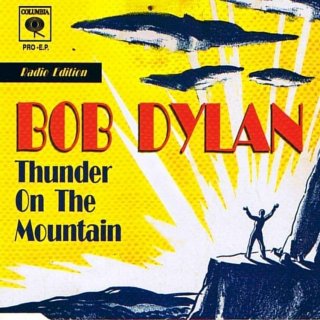
"Thunder on the Mountain" is a song written and performed by American singer-songwriter Bob Dylan, released in 2006 as the first track on his album Modern Times. Like much of Dylan's 21st century output, he produced the song himself under the pseudonym Jack Frost.
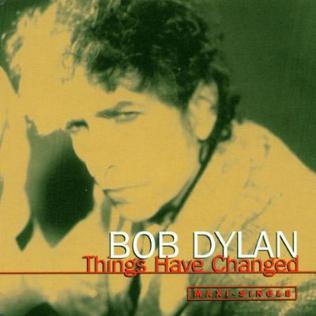
"Things Have Changed" is a song from the film Wonder Boys, written and performed by Bob Dylan and released as a single on May 1, 2000, that won both the Academy Award for Best Original Song and the Golden Globe Award for Best Original Song. It was also anthologized on the compilation albums The Essential Bob Dylan in 2000, The Best of Bob Dylan in 2005 and Dylan in 2007.
"Workingman's Blues #2" is a song written and performed by American singer-songwriter Bob Dylan, released as the sixth track on his 2006 album Modern Times. As with much of Dylan's 21st-century output, he produced the song himself under the pseudonym Jack Frost.
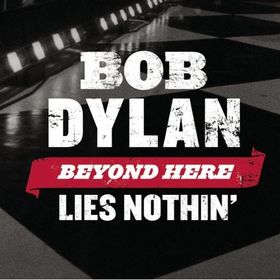
"Beyond Here Lies Nothin' " is a song written by American singer-songwriter Bob Dylan and performed by Dylan as the opening track on his 2009 studio album Together Through Life. The title is a quote from the ancient Roman poet Ovid. The track was available as a free download on Dylan's official website from March 30 to March 31, 2009, and a photo montage set to the song premiered on Amazon on April 21. It has been anthologized on every reissue of The Essential Bob Dylan since 2010. Like much of Dylan's 21st century output, he produced the song himself using the pseudonym Jack Frost.

Christmas in the Heart is the thirty-fourth studio album and first Christmas album by American singer-songwriter Bob Dylan, released on October 13, 2009, by Columbia Records. The album comprises a collection of hymns, carols, and popular Christmas songs. All Dylan's royalties from the sale of this album benefit the charities Feeding America in the USA, Crisis in the UK, and the World Food Programme in perpetuity.
"Must Be Santa" is a Christmas song written by Hal Moore and Bill Fredericks and first released in November 1960 by Mitch Miller on Columbia 41814. A cover version by Tommy Steele reached Number 40 on the UK Singles Chart a year later. Another cover, by Joan Regan made number 42 a week later.
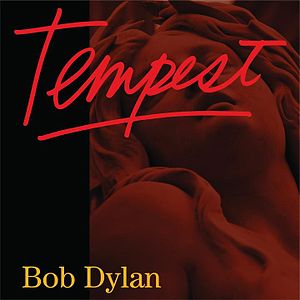
Tempest is the thirty-fifth studio album by American singer-songwriter Bob Dylan, released on September 10, 2012, by Columbia Records. The album was recorded at Jackson Browne's Groove Masters Studios in Santa Monica, California. Dylan wrote all of the songs himself with the exception of "Duquesne Whistle", which he co-wrote with longtime Grateful Dead associate Robert Hunter.
"Soon After Midnight" is a song written and performed by American singer-songwriter Bob Dylan that appears as the second track on his 2012 studio album Tempest. Like much of Dylan's 21st-century output, he produced the song himself using the pseudonym Jack Frost.
"Narrow Way" is a blues rock song written and performed by American singer-songwriter Bob Dylan that appears as the third track on his 2012 studio album Tempest. Like much of Dylan's 21st-century output, he produced the song using the pseudonym Jack Frost.
"Long and Wasted Years" is a song written and performed by Bob Dylan that appears as the fourth track on his 2012 studio album Tempest and was anthologized on the 2016 reissue of The Essential Bob Dylan. Like much of Dylan's 21st-century output, he produced the song himself using the pseudonym Jack Frost.
"Pay in Blood" is an uptempo rock song written and performed by Bob Dylan that appears as the fifth track on his 2012 studio album Tempest. Like much of Dylan's 21st-century output, he produced the song himself using the pseudonym Jack Frost.

"Early Roman Kings" is a blues song written and performed by Bob Dylan that appears as the seventh track on his 2012 studio album Tempest. It was also released as the album's lead single through Columbia Records on August 7, 2012. Like much of Dylan's 21st-century output, he produced the song himself using the pseudonym Jack Frost.
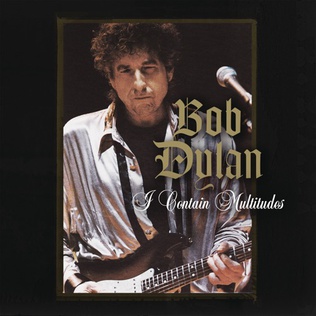
"I Contain Multitudes" is a song by the American singer-songwriter Bob Dylan, the opening track on his 39th studio album, Rough and Rowdy Ways (2020). It was released as the album's second single on April 17, 2020, through Columbia Records. The title of the song is taken from Section 51 of the poem "Song of Myself" by Walt Whitman.
"Lonesome Day Blues" is a twelve-bar blues song written and performed by Bob Dylan that appears as the fifth song on his 2001 album Love and Theft. Like most of Dylan's 21st century output, he produced the song himself under the pseudonym Jack Frost.
"It's All Good'" is a blues song written by American singer-songwriter Bob Dylan that appears as the 10th and final track on Dylan's 2009 studio album Together Through Life. Like much of Dylan's 21st century output, he produced the song himself using the pseudonym Jack Frost.
"Key West " is a song written and performed by the American singer-songwriter Bob Dylan, released as the ninth track on his thirty-ninth studio album, Rough and Rowdy Ways (2020). The tracks for the album were written by Dylan at his home in Point Dume in late 2019 and early 2020. It was recorded at Sound City Studios in Los Angeles in January and February 2020 and released in June 2020. The song is an accordion-driven ballad that incorporates references to other songs and to the City of Key West.









